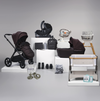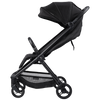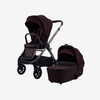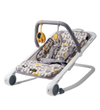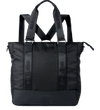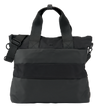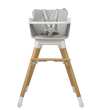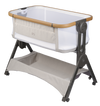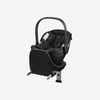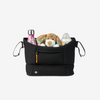For new mums, exercising after childbirth can have whole host of benefits for your health and wellbeing. However, it's important that you listen to your body and don't do too much until you're ready. If you think you've rested up for long enough and are itching to get back into exercising, here are our tips for making sure you're working out in a way that's sensible and healthy for you and your baby.
Why exercise is good for new mums
Pregnancy, childbirth, and taking care of a new born can really take it out of you, physically and emotionally. Exercising regularly is a great way to raise your happiness levels as it makes your body produce endorphins; chemicals that reduce pain perception and boost your mood (WebMD). Because of this, being active can reduce the risk of post-partum depression as well as keep you fit, healthy, and ready to face the challenges new motherhood can bring.
New and first-time mums might want to consider exercise classes. Many are tailored specifically to people who have recently given birth, and even allow you to bring your new born along. With everything going on, your social life can take a bit of a hit after having a baby and attending weekly sessions gets you out of the house interacting with people. Mum and baby classes can also be welcoming sources of support and friendly advice from other mothers.
Wait until you are ready
How soon you can start exercising after childbirth, and how often, depends on various health factors such as your exercise habits pre-baby and how straightforward your pregnancy was. The NHS recommends waiting until six weeks after having your baby to begin, but some mums may need more time to heal.
Circumstances that affect how quickly you can work out include:
- How much you exercised before and during your pregnancy
- Type of labour and birth, including C-sections and complications
- Your pain and energy levels
- The amount of post-natal bleeding you are experiencing
All new mums should take it easy at first, sticking to gentle walking, soft stretches, and pelvic floor exercises. Before you move onto anything heavier, it's best to wait until after your post-natal check. This usually takes place after six weeks and assesses your recovery, and it also gives you the chance to ask your GP any questions about exercise that you may have.
Even if you feel ready, take it easy. Some of the hormones produced during pregnancy and breastfeeding make your joints more supple and bendy, so you could accidentally injure yourself if you exercise too much. If you're specifically targeting your tummy, avoid sit-ups, planks, and straight-leg raises, as these can cause your stomach muscles to spread further apart.
Good exercises to include in your routine
Swimming is easy and low impact — plus, you can spend as much or as little time in the pool as you like, which is ideal for a busy mum. Paddling up and down the lanes at your own pace is a good way to take some time for yourself and let your mind relax, but you should wait until after your post-natal check and seven days after your last post-natal bleed to enter the pool. You might put yourself at risk of infections from the water if you attempt to swim before you are fully healed.
Having a pushchair ready for when your baby is born means that, from day one, both of you can get some fresh air and you can get your steps in while running errands. It's worth investing in a high-quality pushchair with full suspension so that you can incorporate it into your exercises without bothering your baby: try using it as balance for squats, lunges, and stretches, or even powerwalking with your pushchair to keep as active as possible.
Your local area is likely to have regular pram and buggy meet-ups that go for walks around local parks, so you can keep active and tick social interaction off your to-do list at the same time. Plus, they're the perfect excuse to show off your stylish new pushchair and accessories.
If you're too tired, too busy, or struggling to find someone to look after your baby while you exercise, you can always work more physical activity into your daily routine. Look up some good exercise videos to use while your baby naps, walk around with them while they're feeding, and remember to practice tummy and pelvic floor exercises while you're doing other tasks. That way, you can pack in enough exercise throughout the day, even if you can't make it to the park or the gym.
Exercise is good for your body and mind, but new mums should make sure they're properly healed before they attempt heavy workouts. Using the tips in this guide, you can gently and effectively incorporate exercise into your routine without causing damage to your body.

